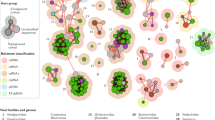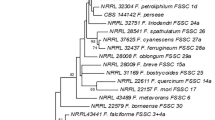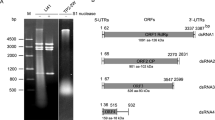Abstract
ATTEMPTS to discover the presence of a foreign organism in such diseases as tobacco-mosaic, tomatomosaic, leaf-roll of potato, and numerous other similar infectious diseases have been the concern of botanists for many years. Although considerable knowledge has been gained as to the distribution of these diseases by insects such as Aphides, yet no causal organism has been observed with certainty, and the diseases have been classed accordingly as virus diseases. The failure to detect the presence of a foreign organism has naturally been a serious handicap in combating these diseases, many of which are of serious economic importance.
This is a preview of subscription content, access via your institution
Access options
Subscribe to this journal
Receive 51 print issues and online access
$199.00 per year
only $3.90 per issue
Buy this article
- Purchase on Springer Link
- Instant access to full article PDF
Prices may be subject to local taxes which are calculated during checkout
Similar content being viewed by others
Author information
Authors and Affiliations
Rights and permissions
About this article
Cite this article
LACEY, M. Protozoa and Virus Diseases of Plants. Nature 112, 280–281 (1923). https://doi.org/10.1038/112280a0
Issue Date:
DOI: https://doi.org/10.1038/112280a0
This article is cited by
-
Some anatomical aspects of plant virus disease problems
The Botanical Review (1938)
Comments
By submitting a comment you agree to abide by our Terms and Community Guidelines. If you find something abusive or that does not comply with our terms or guidelines please flag it as inappropriate.



